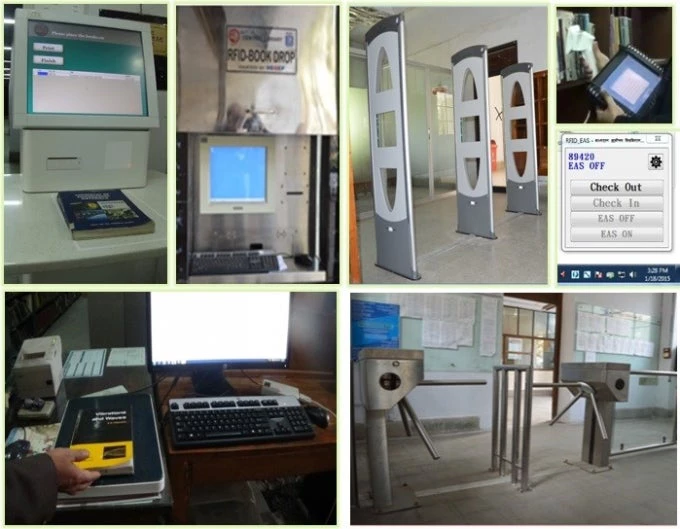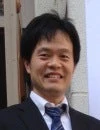
Components of the newly established RFID-based LMS system
The library of any academic institution plays a key role in providing knowledge-based support to its faculty members, researchers and students. In recent years, the ‘digital library’ has emerged as a novel concept. It allows the access to and sharing of literary information and resources in digital and non-digital forms within the local and global communities. However, for Bangladesh a ‘digital library’ was only a dream until the Academic Innovation Fund (AIF) under the Higher Education Quality Enhancement Project (HEQEP) intervened. The Central Library of the Bangladesh University of Engineering & Technology (BUET) has now been digitized. The library is now a role model for other universities in Bangladesh.
The Central Library of BUET now has a contemporary Radio Frequency Identification (RFID)-based library management system (LMS). The LMS is developed with different software and hardware components such as staff-workstation, self-check, book-drop, digital data manager, antitheft detection gates and access control. New servers, workstations, routers and high-speed scanning systems for digitalization of paper-based resources have been introduced to upgrade the ICT network system. Selecting appropriate software and hardware components and making them compatible to each other were the major challenges in designing the LMS. Consistent support from all the parties in the implementation of the project made the very complicated and massive system architecture stable and fully-functional.
“Senior-level undergraduate and postgraduate students are very happy about the new library system. Now library items can be checked out and returned using a self-serve kiosk anytime the students want to. Transactions are now recorded electronically, and notices are automatically sent through e-mails as a reminder of overdue items. Anyone can now identify and locate items from different areas such as catalogs of the library, digital institutional repository, and e-resources subscribed by BUET through computer key word search." Dr. S. M. Mahbubur Rahman, a Professor of the department of Electrical and Electronic Engineering of BUET remarked. "Moreover, we introduced central air-conditioning system to create a comfortable study and research environment. A recent study on library utilization shows a significant increase in number of students, particularly the research students, using the library more frequently and longer hours than before."
“Our new center is open to other universities. We have already received requests from other universities to use our conference center for their professional trainings. With our new automated library system and conference center, we strongly believe we can contribute to the advancement of library services not only in our university but also to others in the country” After introducing the new library system, more students and faculty are now using library resources. In the future, the librarian team of BUET will assist all the other universities in Bangladesh to establish ‘digital libraries’. This will effectively minimize cost and improve learning experiences through sharing of valuable literary and scholarly materials. (Prof. S. M. Mahbubur Rahman, BUET contributed to this piece)


Join the Conversation